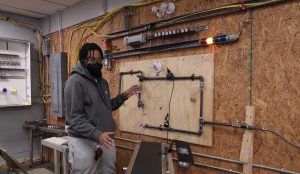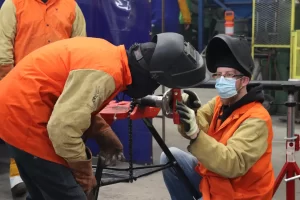Technical abilities for a particular career or trade are the main focus of vocational training programs. Instead of the theoretical information given by the traditional formal education system, vocational courses provide you with practical knowledge. Knowing the types of vocational training options can boost your career growth and development. A vocational training program prepares you for real-life opportunities that help you fulfill your dream.
A technician, artisan, or tradesperson is an example of a job requiring specialized skills. Vocational training is an academic program that prepares you for this type of job. For this instruction in a classroom, practical experience or a combination of the two may be involved. One or two vocational disciplines are typically offered in secondary and higher secondary education. Even yet, legitimate vocational education is provided outside the traditional educational system, frequently resulting in a vocational certification or diploma. Whether you have a formal education, you can also receive occupational training directly as an apprentice or trainee.
The following justifications make vocational training crucial:
The advantages of vocational education can be attained by students through several resources, including:
Through these vocational training programs, students can learn about several career options and prepare for jobs in particular industries or graduate school. These programs are intended to mold high school students who wish to receive training and gain job experience in various trades while continuing their academic pursuits.
The Tech Prep program provides its graduates with an associate’s degree or a certificate in a specific discipline. This program assists those pursuing technical jobs in applied science, engineering, economics, technology, and health.
Occupational postsecondary institutions are also known as the best vocational schools. For students planning to attend college, they are a great choice. Additionally, they offer degree programs as well as occupational certificates. Because they provide possibilities for weekend and night classes, these are especially advantageous for employed adults. The post-secondary vocational school provides training in carpentry, massage treatment, cosmetology, and culinary arts.
Trade-specific programs make up the apprenticeship schemes. They allow the trainee or student to work under the supervision of an expert in a particular trade.
Students who want non-degree education and want to enhance their abilities to increase their marketability might enroll in stand-alone courses. Professionals who want to meet any job requirements, keep up with technological advances, broaden their skill sets, or pick up additional trades do so by pursuing this form of schooling.
Working professionals can work through the materials because vocational trade schools’ distance learning programs are excellent ways to build a particular skill set. But some programs will demand that the students show up at a particular hour and adhere to a specific schedule. This finding only recognized and genuine programs through research are worth the time and effort.

Those who are considering the professions mentioned above may pursue vocational education. Medical records specialists, hairdressers, truck drivers, emergency medical technicians, and electricians are just a few professions that require vocational training skills. The following jobs are available to those with vocational education.

The primary responsibilities of an HVAC technician involve installing cooling and ventilation equipment and heating and venting systems. More than high school graduation is required for HVAC technicians; they must also complete two years of specialized training. An apprenticeship program is used during this time to provide on-the-job training.
High school graduation is required for plumbers. According to their locations, they can also acquire licensing. An apprenticeship program is used to obtain training as plumbing contractors construct, maintain, and test plumbing systems.
Electricians perform tasks that repair, maintain, and install wiring and test electrical problems. So a high school graduation and an electrical apprenticeship are both required for the electrician. Apprenticeships might last up to four years due to their engagement in this field.
Respiratory therapists must get an associate’s degree and the necessary licensing to provide treatments, create treatment plans, and conduct diagnostic tests.
For those who need flexible scheduling, have tight schedules, and limited resources, vocational programs are quite helpful. Vocational training can help you get through your desired dream job. Moreover, for adults with jobs who must mix school with work, it is more economical than traditional education and simpler to complete.
Read More